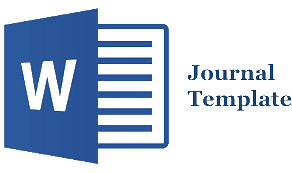WATER POLLUTION CONTROL POLICY IN NEPAL AND INDONESIA
Abstract
Water is a fundamental aspect of Indonesia's natural resources that must be utilized to the greatest extent possible for the benefit of the people. This indicates that the use of water for various purposes and interests must be done with caution, with regard to the interests of present and future generations in mind. Most water sources in Nepal have become polluted due to fast population growth. Water quality problems caused by physical and chemical factors have a big effect on public health when the concentrations are high. In this study, normative legal research methods are used, where library materials are basic information that is delegated and additional information is available. The conclusion of this research is that Nepal's constitution is founded on and approved by law, and it governs political, economic, and social connections as well as other rights such as land ownership. Changes in political systems and power relations result in changes in laws, decision-making authorities, and institutions, which impact water rights interactions. As an archipelagic country with a sea that encompasses two-thirds of its national territory, the world's second longest coastline, and is also known as a maritime country, Indonesia bears a significant obligation to safeguard its seas from water pollution.
Keyword: Water Pollution, Policy
Full Text:
PDF (Bahasa Indonesia)References
Asep Sugara, Implementasi Kebijakan Pengelolaan Kualitas Air Dan Pengendalian Pencemaran Air Kali Sabi Di Kota Tangerang, Jurnal Mozaik Vol. IX Edisi 1 July 2017.
Bieby Voijant Tangahu, Pengendalian Pencemaran Air DLH Kab. Sidoarjo 02 May 2019 , Departemen Teknik Lingkungan ITS.
BPPT, Pengelolaan Sumber Daya Air Solusi Atasi Krisis Air, accessed at https://www.bppt.go.id/teknologi-sumberdaya-alam-dan-kebencanaan/2202-pengelolaan-sumber-daya-air-solusi-atasi-krisis-air, pada tanggal 12 November 2020.
Candra Samekto dan Ewin Sofian Winata, Potensi Sumber Daya Air di Indonesia, accessed at https://www.researchgate.net/publication/265151944.
Dhoni Yusra, Kebijakan Penentuan Kualitas Air Serta Sanksi Bagi Pelaku Pencemaran Dan Tanggung Jawab Negara Mengantisipasi Pencemaran Air, Lex Jurnalica Vol.4 No.1, December 2006.
Digital Library AMPL, Hak atas Air sebagai Hak Asasi Manusia, accessed at http://www.ampl.or.id/digilib/read/35-hak-atas-air-sebagai-hak-asasi-manusia/48056, pada tanggal 12 November 2020.
His Majesty's Government of Nepal, Executive Summary Water Resources Strategy Nepal, Water and Energy Commission Secretariat Singha Durbar, Kathmandu, Nepal January 2002.
Jeremy Carew-Reid, Ajay Pradhan and Christina Moore, Environmental Pollution In Nepal A
Raju Bhattara dan Khet Raj Dahal, Review Of Water Pollution With Special Focus On Nepal, Lumbini International Academy of Science and Technology, Lalitpur, Nepal, JETIR May 2020, Volume 7, Issue 5.
Review Of Studies, NPCJIUCN NCS Implementation Progromme an August 1991.
Shyamu Thapa Magar, Water Resources In Nepal: Institutional Analysis Based On Legal Provisions.
Shantam S. Khadka. Water Use and Water Rights in Nepal: Legal Perspective
Windyanisa Afifah Fauziana, Kebijakan Pemerintah dalam Rangka Pengendalian Kualitas Air Sungai dan Penanggulangan Pencemaran Sungai (Studi Kasus : Sungai Ngringo, Karanganyar), Universitas Muhammadiyah Yogyakarta.
WaterAid Nepal, Water Laws in Nepal Laws Relating to Drinking Water, Sanitation, Irrigation, Hydropower and Water Pollution.







